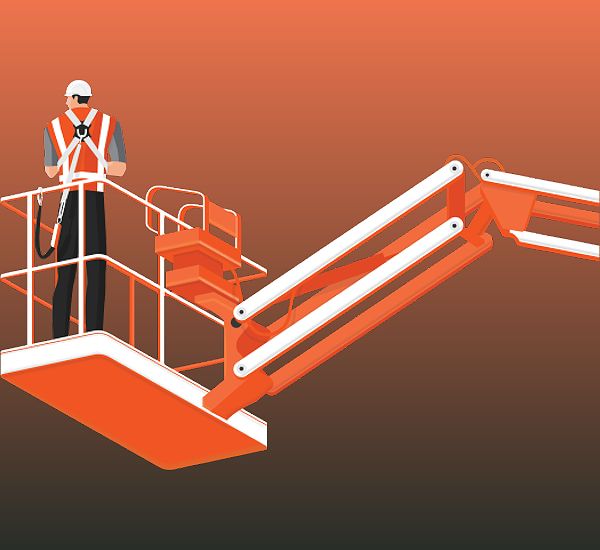As a seasoned construction professional, I understand the inherent risks that come with our line of work. From potential injuries to third parties to unforeseen property damage, the financial consequences of a single lawsuit can be devastating to your business. That’s why general contractor general liability insurance is a fundamental requirement for nearly every construction company — it’s the cornerstone of a comprehensive risk management strategy.
Unlocking the Power of General Liability Coverage
General liability insurance provides essential protection by covering attorney fees, court costs, settlements, and judgments for claims made against your company. Whether it’s a customer’s trip-and-fall incident or a dispute over damage to a client’s property, this coverage can help safeguard your business from the financial burden of such claims. It’s the safety net that allows you to focus on what you do best — delivering high-quality construction services to your clients.
Understanding the Scope of Coverage
General liability insurance for construction contractors, also known as commercial general liability (CGL) coverage, is designed to protect your business against claims of bodily injury or property damage resulting from your work. This type of policy covers a wide range of scenarios, including:
- Bodily Injury: If a customer or other third party is injured due to your construction activities, the policy will cover the associated legal fees and settlement costs.
- Property Damage: If your work causes unintentional damage to a client’s property, such as furniture, drywall, or flooring, the policy will help cover the cost of repairs.
- Personal and Advertising Injury: This coverage protects against claims of libel, slander, or copyright infringement that may arise from your business activities or marketing efforts.
By understanding the breadth of protection offered by general liability insurance, you can rest assured that your construction business is shielded from the financial risks that come with our industry.
The Importance of General Contractor General Liability Insurance

As a construction professional, you know that general liability insurance is not only a practical necessity but may also be a legal requirement in certain states. The financial burden of a single lawsuit can be devastating, potentially leading to business closure. By transferring this risk to an insurance carrier, general liability coverage helps construction contractors safeguard their operations and maintain a strong reputation in the industry.
Factors Influencing Insurance Premiums
The cost of general liability insurance for construction contractors can vary depending on several factors, including:
- Type of Construction Work: The risk level associated with the specific type of construction projects you undertake.
- Project Size and Complexity: Larger and more complex projects generally carry higher premiums.
- Safety Record: A history of accidents or claims can increase your insurance costs.
- Geographic Location: Premiums may be influenced by local regulations and risk factors.
- Annual Revenue: Higher business revenue typically translates to higher insurance premiums.
- Number of Employees: A larger workforce can lead to increased insurance costs.
Understanding these factors can help me better manage my insurance costs and explore strategies to optimize my coverage. By demonstrating a commitment to safety, maintaining detailed records, and bundling my policies, I can often negotiate favorable terms and premiums.
Complementary Insurance Policies

While general liability insurance is a fundamental coverage for construction professionals, it is not the only policy you should consider. Other essential insurance policies for construction contractors include:
- Workers’ Compensation Insurance: Covers medical expenses and lost wages for employees injured on the job.
- Commercial Auto Insurance: Protects your business vehicles and drivers from liability and property damage claims.
- Inland Marine Insurance: Covers portable equipment, tools, and materials used at job sites or in transit.
- Professional Liability Insurance: Covers claims of financial loss due to errors, omissions, or negligent work.
- Subcontractor Default Insurance: Provides protection against the financial consequences of a subcontractor’s failure to perform.
By implementing a comprehensive insurance program tailored to your construction business’s unique needs, you can effectively manage a wide range of risks and protect your company’s financial well-being.
Leveraging Technology for Streamlined Insurance Management
In today’s digital age, technology has become an invaluable tool for managing construction insurance. Online platforms, mobile apps, and data analytics solutions can help streamline the process of obtaining quotes, reporting incidents, and tracking policy information. By embracing these technological advancements, construction professionals can save time, reduce administrative burdens, and make more informed decisions about their insurance coverage.
One notable example is the use of digital risk assessment tools. These applications can help construction companies identify potential hazards, evaluate the likelihood and severity of incidents, and implement targeted risk mitigation strategies. By proactively addressing these risks, contractors can not only reduce the likelihood of claims but also demonstrate their commitment to safety, which can positively impact their insurance premiums.
Another technology-driven solution is the use of incident reporting apps. These mobile applications allow construction workers to quickly and easily document any incidents or accidents, providing detailed information to the insurance provider. This streamlined reporting process can help expedite the claims process and ensure that all relevant details are captured, strengthening the contractor’s case.
Furthermore, data analytics platforms can provide construction professionals with valuable insights into their insurance policies and claims history. By analyzing trends, identifying patterns, and benchmarking against industry standards, contractors can make more informed decisions about their coverage, adjust their risk management strategies, and negotiate better terms with insurance providers.
Embracing a Proactive Approach to Risk Management
Effective risk management is essential for construction professionals seeking to minimize insurance claims and maintain favorable coverage terms. By implementing a proactive approach, contractors can not only protect their businesses but also enhance their reputation within the industry.
Key risk management strategies include:
- Developing and Enforcing Robust Safety Protocols: Implement comprehensive safety training programs, conduct regular site inspections, and foster a culture of safety among your workforce.
- Maintaining Detailed Records: Document every project, incident, and safety-related activity, providing a clear paper trail that can be used to demonstrate your commitment to risk management.
- Communicating Effectively with Stakeholders: Establish clear lines of communication with clients, subcontractors, and other key stakeholders to ensure everyone understands their roles and responsibilities.
- Leveraging Technology Solutions: Utilize digital tools for risk assessment, incident reporting, and insurance management to streamline your risk mitigation efforts.
By taking a proactive approach to risk management, construction businesses can not only reduce the likelihood of claims but also showcase their dedication to safety and responsible operations. This, in turn, can positively impact their insurance premiums and reputation within the industry.
FAQ
Q: What happens if I have a claim under my general liability insurance policy?
A: If you need to file a claim under your general liability insurance policy, the first step is to report the incident to your insurance provider as soon as possible. You’ll likely need to provide detailed documentation, such as the date and location of the incident, a description of what occurred, and any associated damages or injuries. Your insurance carrier will then investigate the claim and work to resolve it, covering the applicable legal fees, settlements, or judgments, up to the limits of your policy.
Q: How can I find a reputable insurance broker for construction insurance?
A: When seeking a reliable insurance broker for your construction business, I recommend asking for recommendations from your industry peers and colleagues. It’s also important to check the broker’s credentials, experience, and specialization in construction insurance. Ensure the broker is licensed and in good standing with your state’s insurance regulatory body, and evaluate their communication style and responsiveness to your needs and questions. By taking the time to find a knowledgeable and trustworthy insurance broker, you can be confident that you’re obtaining the right coverage for your construction company.
Conclusion
As a construction professional, I know that the risks associated with our work can be substantial, but with the right insurance coverage, we can navigate these challenges with confidence. General contractor general liability insurance is a critical component of a comprehensive risk management strategy, providing essential protection against the financial consequences of claims and lawsuits.
By understanding the scope of coverage, key factors influencing premiums, and the importance of complementary insurance policies, construction contractors can make informed decisions and safeguard their businesses. Moreover, by embracing the power of technology, we can streamline the insurance management process and focus on delivering exceptional services to our clients.
Remember, investing in general liability insurance is not just a necessity — it’s a strategic move that can help you protect your construction business, maintain a positive reputation, and thrive in the ever-evolving construction industry. Take the time to review your coverage, consult with a trusted insurance broker, and implement proactive risk management practices. With the right insurance solutions in place, you can build a solid foundation for the future of your construction company.



